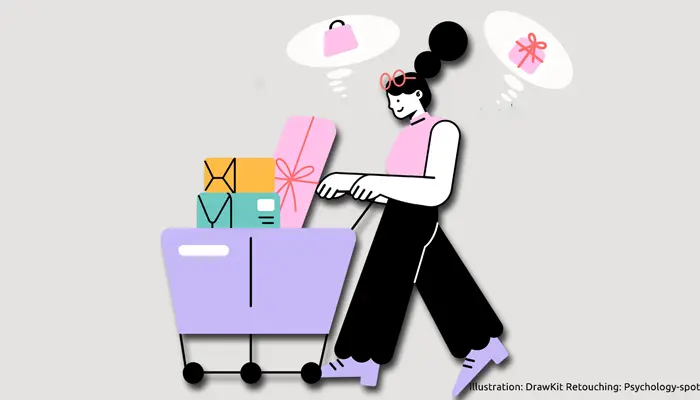
If we compare a current home with one fifty years ago, we will discover that we accumulate all kinds of objects, many of them not only unnecessary but completely useless. In barely half a century, our society has been thrown into the arms of unbridled consumption. As a result, we buy things that we don’t need and that often end up forgotten at the bottom of a drawer or taking up living space at home.
The reasons that lead us to buy more things than we need are many, from that adrenaline rush that precedes the moment of purchase but that goes off after a few hours or in a matter of days, to the false belief that these objects are a source of security and happiness. However, at the bottom of all these reasons what we find is an identification with the objects. As William James said, “A man’s Self is the sum total of all that he can call his, not only his body and his psychic powers, but his clothes and his house.”
We identify too much with our possessions
In 1937, Abraham Bredius, one of the most prestigious art historians in the world, who had dedicated much of his life to the study of Vermeer, thought he had found Vermeer’s painting “Christ and the disciples at Emmaus”, which he described as “An expression of the supreme art.” The value of that painting was incalculable. However, years later it was discovered that it was actually the work of the forger Han van Meegeren and the highly praised painting drastically diminished in value, becoming a mere curiosity.
However, if the painting was really that interesting, expressive and cool, it should have retained its value. Obviously, this is not the case because many things do not have a great value in themselves, but they show off the value that we give them socially. The value of objects is largely determined by the beliefs we have about them, by what they represent and, of course, by what we think they say about us. Owning a Vermeer is a symbol of social status, culture and artistic appreciation. Having a van Meegeren, not so much.
Without realizing it, the objects become part of our identity, both individually and collectively. Through them we communicate our personality, beliefs and tastes, we say who we are and where we belong. This means that when we possess an object, an identification process takes place through which we assimilate a property or attribute of it. For example, Apple users can identify with the aura of innovation, genius and a certain elitism that their products have been surrounded by.
And it is not a merely psychological process. In 2010, neuroscientists at Yale University scanned the brains of a group of people as they placed objects in a container marked “mine” or a container marked with someone else’s name. They found activity in the medial prefrontal cortex in response to seeing one’s own objects. That same zone was activated when the participants described their personality because it is related to thinking about oneself. That means we see our possessions as an extension of ourselves. However, objects not only allow us to express our identity, but also contribute to building it.
We don’t buy what we think we’re buying
When we buy something, occurs a displacement of meaning because we are not simply acquiring an object but the social construct built around it. When we buy a luxury brand, for example, we acquire exclusivity and status. However, we do not always buy things that we identify with, but sometimes those things are an expression of what we would like to be.
And it is that, deep down, we do not buy things. We buy what those things make us feel. Each purchase is integrated with an emotion. Even the choice of a table does not depend exclusively on its color, material or functionality, but on all those moments of joy that we imagine around it. We don’t buy a gym membership either, but the body we dream of. Each purchase contains an illusion, no matter how small.
When that product stops exciting us, we look for another one that generates the promise of happiness again. That’s why we end up trading things we can still use and buying things we don’t need. The truth is that we don’t just buy things, we buy experiences, illusions and status to show to others.
We buy things we don’t need because we think we need them. Because we have identified ourselves in them. Because we believe in the promises they contain. Because they make us feel more powerful and in control of our lives. Although deep down everything is just an illusion.
Source:
Kim, K. & Johnson, M. K. (2014) Extended self: spontaneous activation of medial prefrontal cortex by objects that are ‘mine’. Soc Cogn Affect Neurosci; 9(7): 1006–1012.
Rucker, D. D. & Galinsky, A. D. (2008) Desire to Acquire: Powerlessness and Compensatory Consumption. Journal of Consumer Research; 35(2): 257-267.



